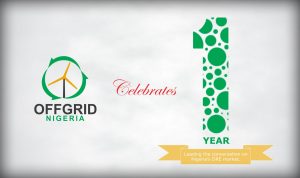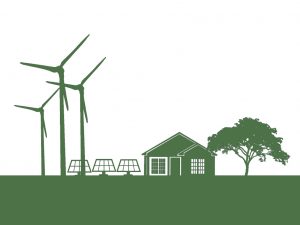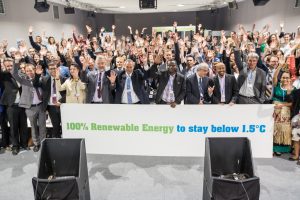Conversations in government circles about diversifying Nigeria’s power supply sources have not been convincing, and this is despite the grave risk further delays on this pose to the country’s economic growth.
If Nigeria is to continue to successfully trade with the rest of the world, then its central government must go beyond its frequent mouthing of energy diversification, and seriously begin to speed up efforts at same.
After almost four years into electricity market liberalisation which it concluded in November 2013, expectations that an energy diversification would take root from a competitive market has not come to reality.
At the moment, Nigeria appears holed up in a catch-22 with her power sector reform program which sadly appears to have drifted on account of poor management. She is however reportedly making efforts to get the reform exercise back on track, but will energy diversification get the kind of attention it deserves?
Over the course of time, conversations within government circles and amongst certain agencies that are relevant to the country’s energy industry have not really supported a proactive pursuit of an energy diversification for the country, and this is even with the strides being recorded by countries who have chosen to diversify their energy supplies, as well as Nigeria’s repeated enactment of policies and laws to think she is indeed serious with diversification.
In its true sense, energy diversification should see Nigeria’s power generation profile which is currently hugely skewed in favour of gas generation by almost 85%, change to accommodate contributions from other sources like solar; wind; biomass; and indeed hydro, which she has in good volumes, but we do not seem to sense that this will happen soon.
Just recently, two of the world’s best business leaders, Strive Masiyiwa, who is a member of the Africa Progress Panel (APP), and founder and chairman of Econet Wireless; and Richard Branson, founder of the Virgin Group, confirmed our position on the economic sensibility of diversifying energy sources especially in Africa.
Masiyiwa and Branson, wrote in a June 2017 article published in the Project Syndicate that diversifying energy supplies through options like mini grids offered Africa the quickest solution to her energy poverty.
And this is quite spot-on for Nigeria whose economy is reportedly considered to be Africa’s biggest, but humorously runs on a meagre daily electricity supply of 4000 megawatts (MW) – a joke many consider to have gone too far and needs to now stop if Nigeria ever wants to be taken serious as a viable investment destination.
In this regards, we believe a firm energy diversification program which include mini grids solutions should be pursued by Nigeria quickly to help her out of the energy mess she’s holed up in.
Undeniably, very good energy diversification policies and laws including the new mini grid regulation of the NERC have been enacted and they do exist in Nigeria, but the processes to drive them to reality are often absent, thus giving relevance to the cliché that Nigeria’s challenges with governance and development are not so much the absence of laws and policies but their application.
Today, a renewable energy revolution looks certain to sweep through the globe, changing the way countries and people generate and use electricity to save more of the earth’s resources and environment, and we think that Nigeria should be at the forefront of this, at least in Africa because she has all it takes to be.
While defenders of fossil fuel can blab all they want including those in government, they must however also accept that there are so many opportunities for a sustainable energy future in Nigeria which is very distinct from the traditional prejudicial opinions they’ve held against renewables.
And if they truly look around, they should be able to concede that the right resources for a good energy mix are all around Nigeria. The country has windy seas in the coasts; gushing waterfalls in the tropics; scalding hot weather in states that in the north; immense municipal waste; and more importantly, a hungry market for stable electricity even within the West African economic zone, and a smart young population that can turn these resources to valuable uses.
In addition to these, countries with less of the renewable resources Nigeria has, are doing so well with their energy diversification efforts, indicating the need for Nigeria to speed up her diversification timetable now because the clock is indeed restless.





